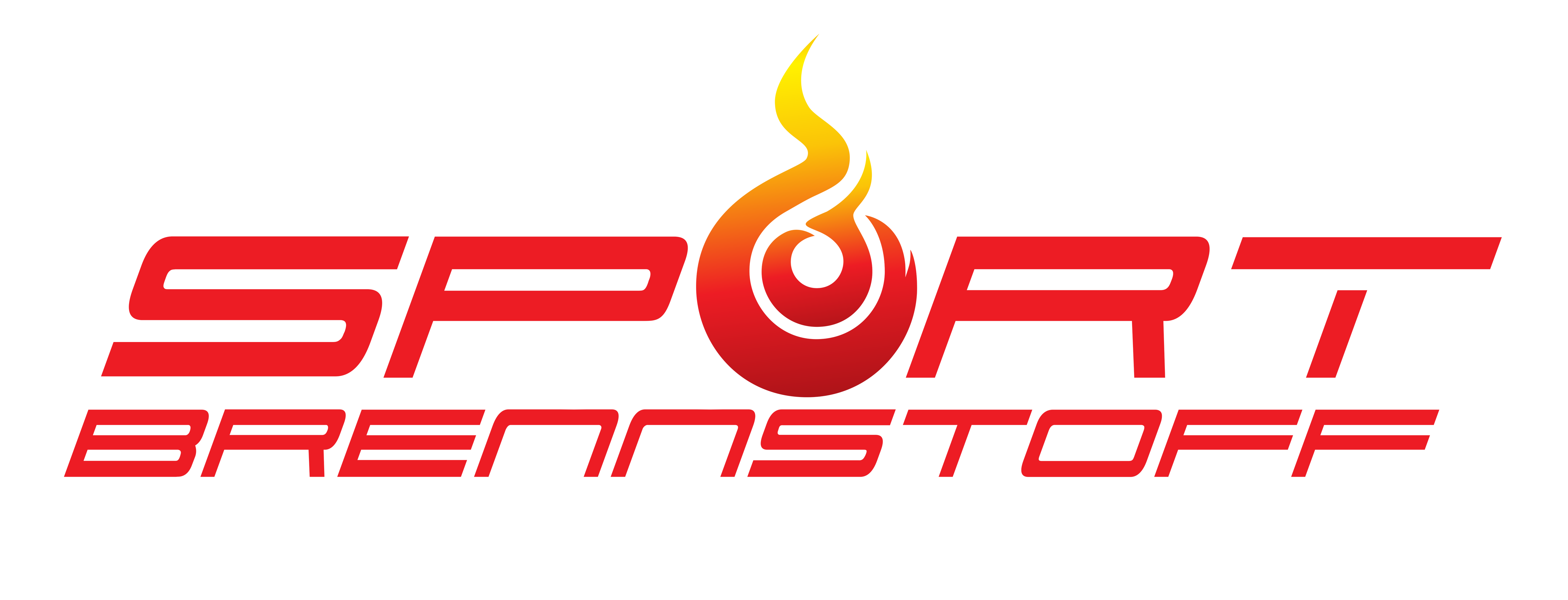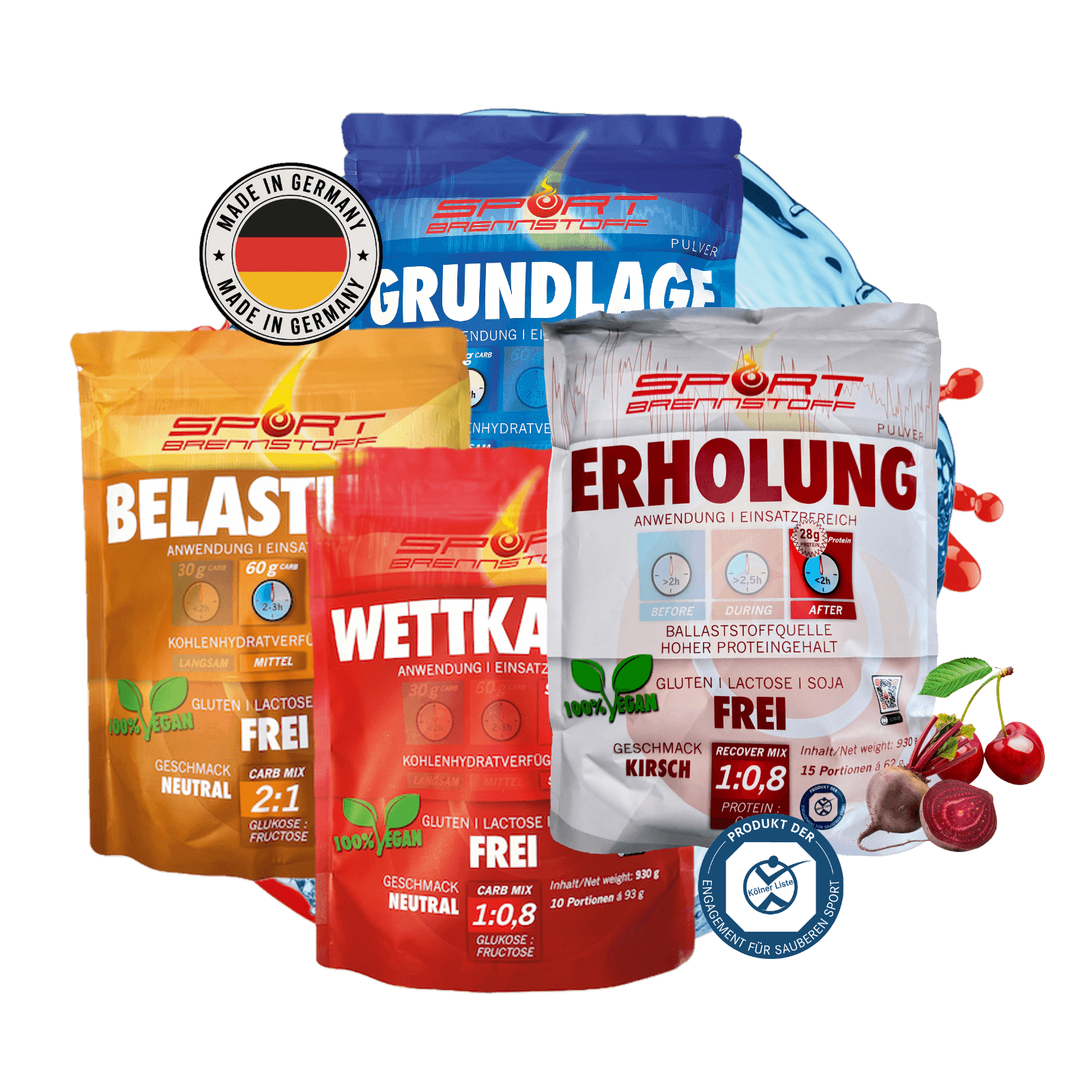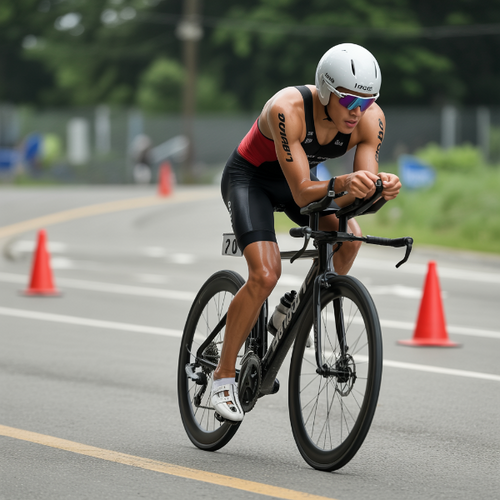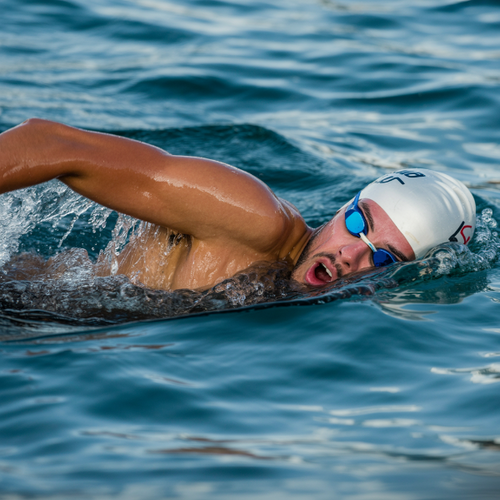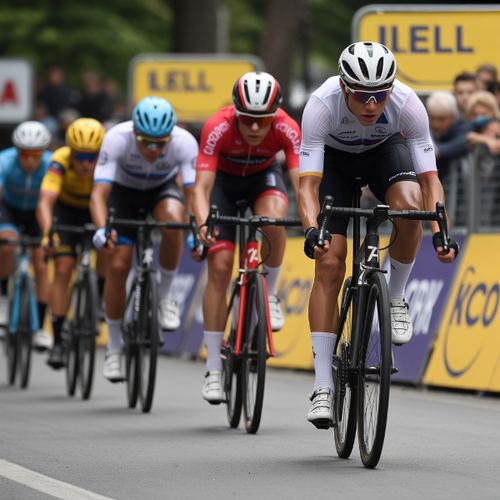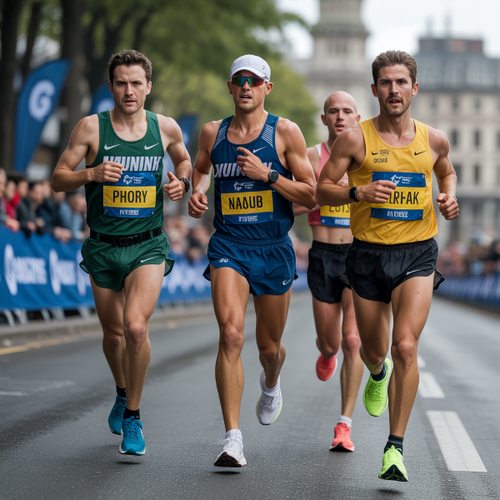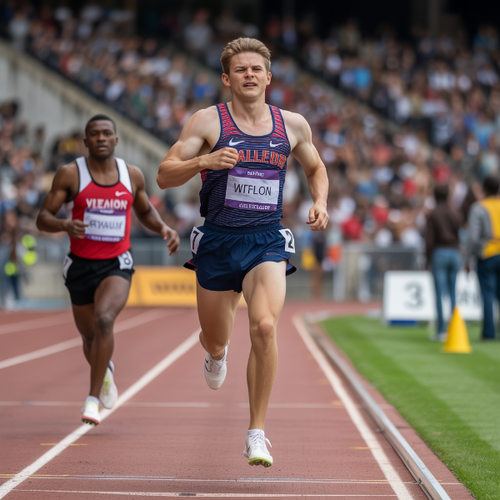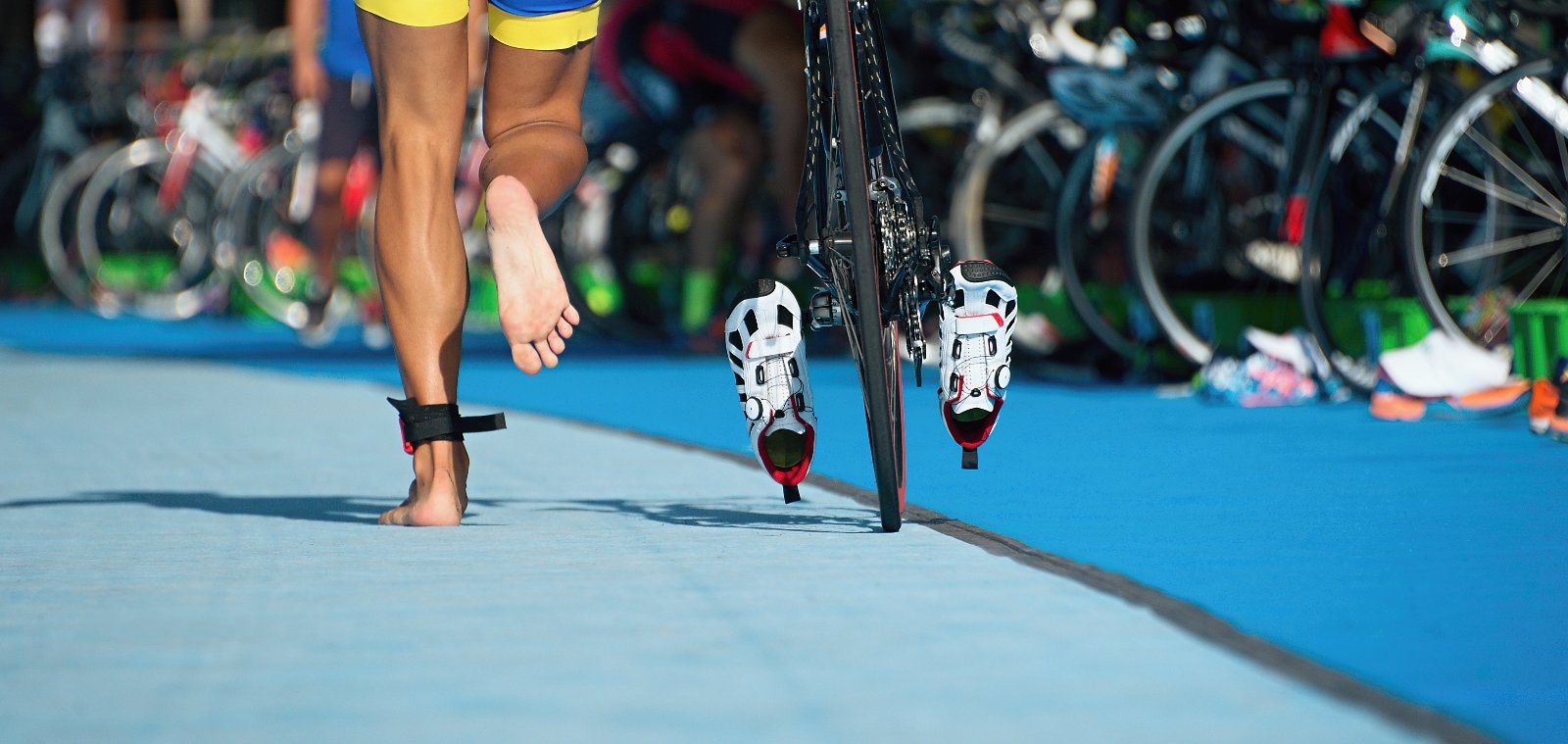





Excellent 4.9/5 - verified
TRIATHLON
Energy supply is the key to success
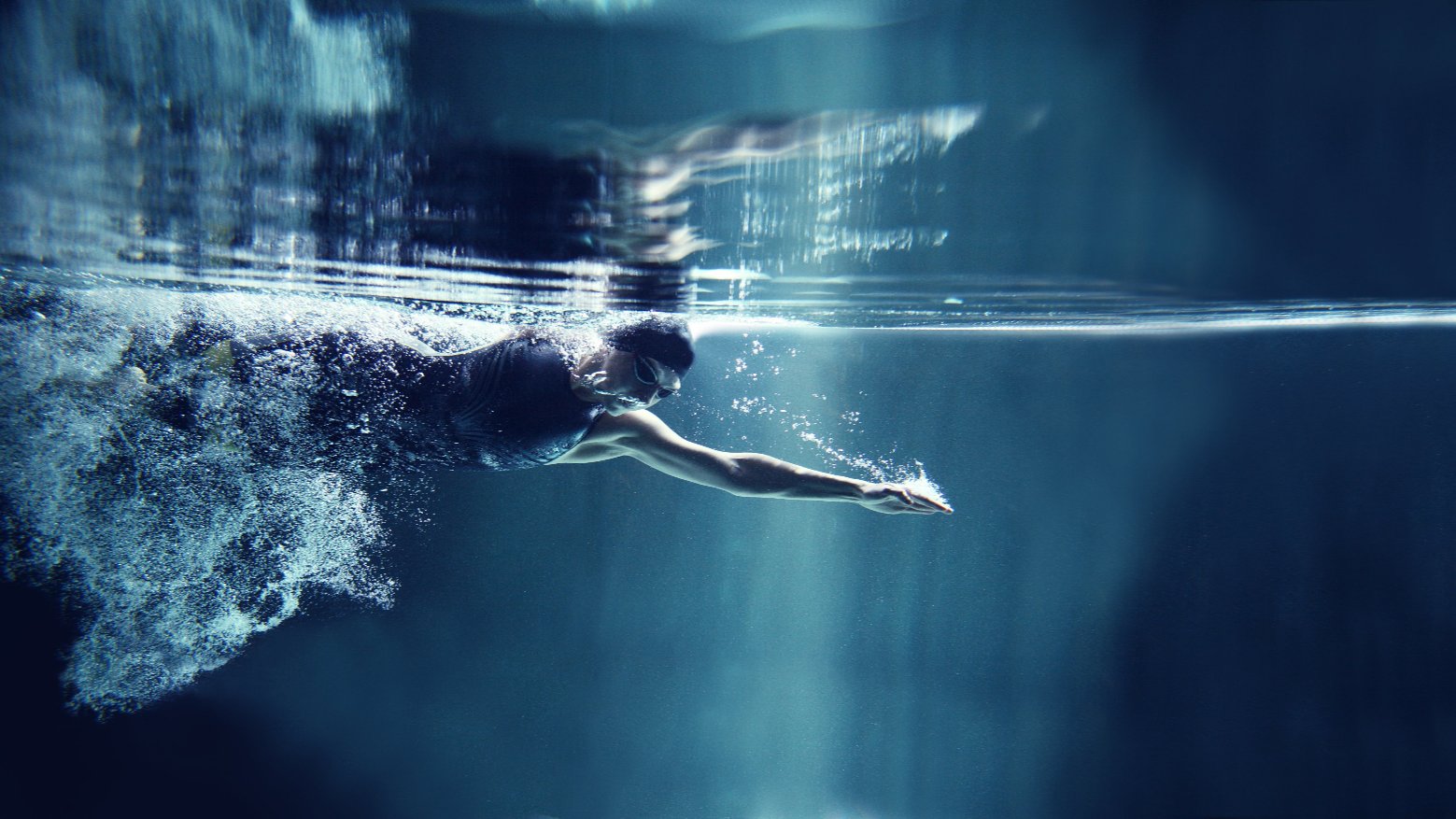





Excellent 4.9/5 - verified
SWIMMING
Natural sports nutrition and regeneration






Excellent 4.7/5 - verified
CYCLING
More energy - More performance






Excellent 4.9/5 - verified
RUNNING
Natural sports nutrition for your sport
To know
What is sports nutrition?
Sports nutrition refers to all foods and dietary supplements specifically tailored to the needs of athletes. Their main goal is to optimally supply the body with energy, macronutrients, and micronutrients to support performance during training and competition and to promote recovery.
What is included in sports nutrition?
Sports nutrition encompasses a wide range of products:
- Conventional foods such as whole grain products, fruits, vegetables, meat, fish and dairy products.
- Special sports nutrition products such as carbohydrate drinks, protein shakes, energy bars, isotonic drinks, amino acids, creatine, as well as vitamins and minerals in concentrated form.
These products are formulated to specifically meet the increased need for nutrients that arises from physical exertion.
What is sports nutrition good for?
Sports nutrition can help with that:
- Replenish energy stores before, during, and after training.
- To support muscle growth and maintenance.
- To accelerate recovery after intense exertion.
- Strengthening the immune system and avoiding nutrient deficiencies.
Especially with intensive or frequent physical activity, it can be difficult to meet the increased demand solely through normal nutrition. Sports nutrition offers a practical and targeted supplement here.
Who is sports nutrition suitable for?
Sports nutrition is not only aimed at professional athletes. Recreational athletes, people with little time for balanced meals, individuals on diets, or those with increased nutrient requirements can also benefit.
Conclusion
Sports nutrition is not a substitute for a balanced diet, but a useful supplement when increased needs for certain nutrients exist due to sports or when the supply through normal nutrition is insufficient. It helps athletes achieve their goals – whether it's muscle building, increased endurance, or faster recovery – more effectively.
Discover high-quality sports nutrition for every sport – individually tailored to your training goals. Find the optimal energy supply before, during, and after training with Sportbrennstoff. Discover the right products now and increase your performance!
Sports nutrition in various sports
Triathlon
Triathlon is a multi-sport discipline consisting of three components: swimming, cycling, and running. Each of these disciplines places specific demands on sports nutrition, enabling athletes to optimize their performance and successfully complete the long competitions.
1. High energy demand
2. Carbohydrates as the main source of energy
3. Sufficient protein intake
4. Fats for sustained energy
5. Fluid intake and electrolytes
6. Timing of food intake
7. Choosing sports nutrition during the competition
Individual adjustments
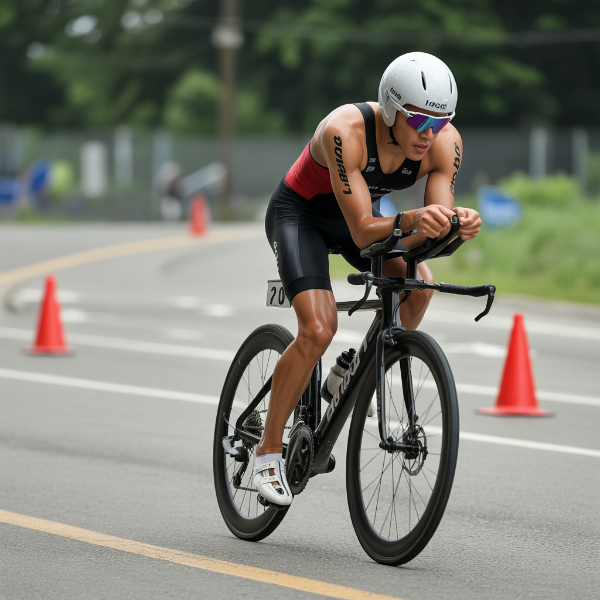
Swimming sport
Swimming places specific demands on sports nutrition, which must be tailored to the needs of the athletes. Here are some of the most important aspects to consider when it comes to the nutrition of swimmers:
1. High energy demand
2. Sufficient carbohydrate intake
3. Protein intake
3. Fats for sustained energy
4. Fluid intake
5. Timing of food intake
6. Individual needs
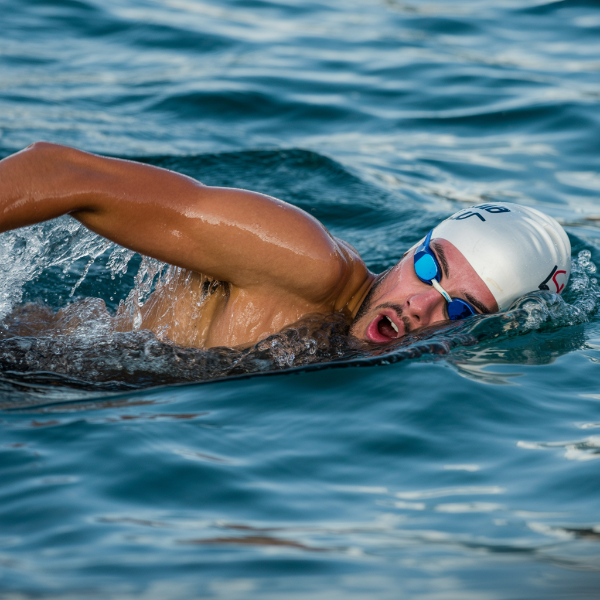
Cycling
Cycling, whether in competition or training, places specific demands on sports nutrition, which are crucial for the performance and recovery of athletes. The following aspects are particularly important to meet the energy requirements and physical challenges this sport entails:
1. Carbohydrate requirement
2. Fluid requirements
3. Protein for muscle repair and growth
4. Timing of food intake
5. Micronutrients
6. Food intake during the competition/exercise
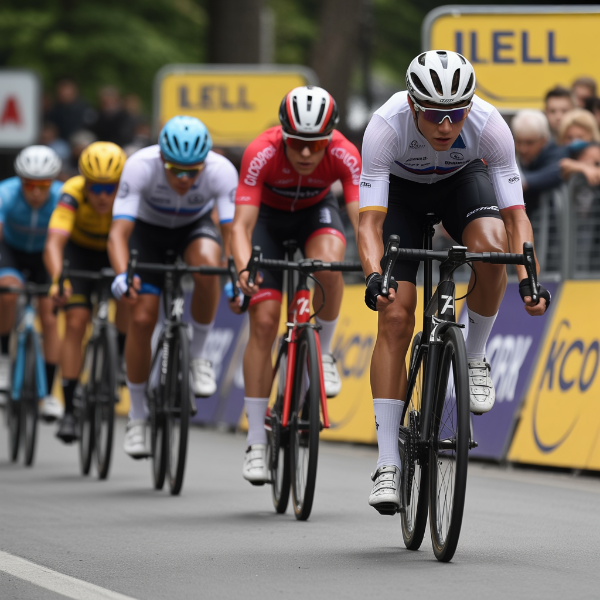
Running sport
Running, due to its high intensity and endurance requirements, places some special demands on sports nutrition. Here are some important nutritional aspects for runners:
1. Carbohydrate requirement
2. Fluid requirements and electrolytes
3. Proteins for recovery
4. Considerations Regarding Micronutrients
5. Strategies for Eating
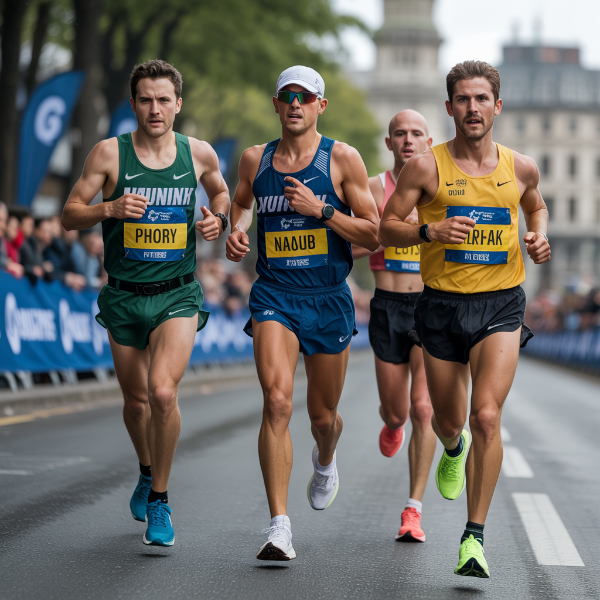
Track and field
Here are the key aspects of sports nutrition for track and field athletes in brief bullet points:
1. A balanced diet with plenty of fruits, vegetables, whole grains, meat and fish
2. Carbohydrates are an important source of energy, especially before and after training (e.g. pasta, rice, potatoes)
3. Daily carbohydrate requirement for sprinters: approx. 5-7 g/kg body weight
4. Protein (1.6 g/kg body weight) supports muscle growth and regeneration (e.g. white meat, fish, eggs)
5. Fats (20-25% of energy intake), preferably unsaturated fats from nuts, fish and vegetable oils
6. Adequate fluid intake and electrolytes (sodium, potassium, magnesium) to prevent dehydration.
7. Meals should be adjusted to training and competition times.
8. Avoid foods that cause gastrointestinal problems on the day of the competition.
9. Use nutritional supplements only when specifically needed.
These points optimally take into account training requirements and regeneration.

Team sports
Team sports, due to their intermittent high intensity and varied competition schedules, place special demands on sports nutrition. The following are some important nutritional aspects for team athletes:
1. Carbohydrate requirement
2. Fluid requirements
3. Proteins for regeneration
4. Timing of food intake
5. Adjustment to the competition schedule

Let customers speak for us
from 261 reviewsDas meist-genutzte Produkt in unserem Haushalt, super zu dosieren und daher vielfältig einsetzbar. Schmeckt gut und ist super verträglich.
Perfekter Support für den Fettstoffwechsel, weil es keine Insulinspitzen verursacht. Optimale Versorgung für alle Grundlagen-Einheiten
Toller Geschmack und angenehme Konstistenz. Immer zuverlässig versorgt direkt nach dem Sport, TOP!
Ich empfinde das Produkt als top und geschmacklich auch sehr gut. Allerdings ist mir die Konsistenz bei der empfohlenen Dosis viel zu dick und reduziere die Menge.
Eines der besten Produkte die es auf dem Markt meiner Meinung nach gibt. Der Service zudem hervorragend.
Top - genau richtig und so wie‘s draufsteht! Geschmacklich neutral und nicht aufdringlich. Nicht süß und kein Kratzen im Hals.
Ich habe die Erholung wiederholt gekauft und finde es klasse!
Also wettkampfbasis verwendet - vor allem am Fahrrad als Versorgung - super vertragen und top versorgt.
Ich mag dass es sehr neutral schmeckt, und super für lange Einheiten ist! Alles drin was man braucht.
Funktioniert super, sogar derGroßvater hat es ausprobiert und ist sehr zufrieden mit dem Ergebnis des Produktes..
Gutes Produkt, bekömmlich und ohne Nebenwirkungen wie Unwohlsein, Völlegefühl
Ich habe seit Jahren Neurodermitis und habe so einige Sportgetränke ausprobiert und benutzt, aber Grundlage schmeckt mir nicht nur gut, sondern meine Haut verträgt es besonders gut, weil es Fruktose Frei ist. Keine roten Augen mehr die nach Stunden anfangen zu tränen.
Hervoragendes Kohlenhydrat für den Wettkampf. Ein wenig süß aber sehr magenverträglich. Habe vieles ausprobiert und mich auf Sportbrennstoff festgelegt.
Sehr wirksamsPulver,hab diesesProduk für lange Distanzen beim Ultratrail benutzt und war von der schnellen Kohlenhydrate Zufuhr sehr begeistert 👍
Klein, aber fein, gute Qualität
Stay in touch and well informed...
Become a member of the SportBrennstoff Club and receive an exclusive 10% discount on your first purchase.

Free shipping
from €60 in Germany and Austria

Hassle-free shopping
Satisfaction guarantee and transparent return conditions

Secure payments
Absolutely secure processing of all payments

Satisfied customers
Over 25,000 customers | ø 4.9 ⭐️ with +250 reviews
PRODUCT PORTFOLIO
INFORMATION
Environmentally conscious
Our packaging is environmentally friendly, and we participate in the Green Dot recycling system. Please support our efforts and recycle our packaging.
© 2025 SportBrennstoff®. All Rights Reserved
